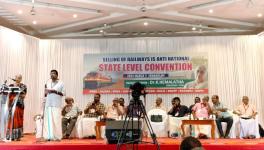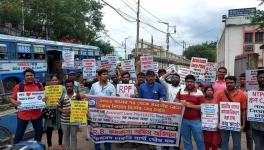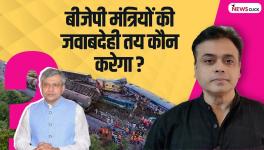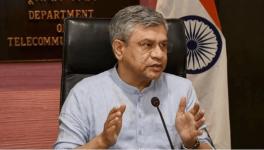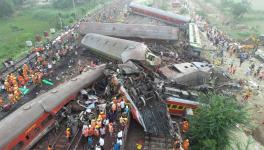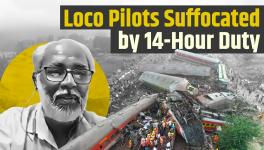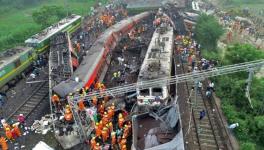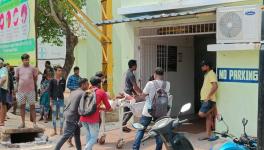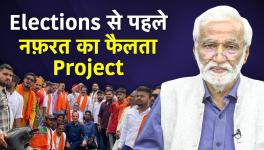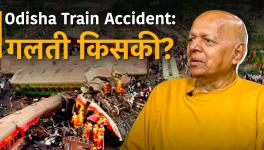‘Railways, Lifeline of India’s Economy, is in ICU’
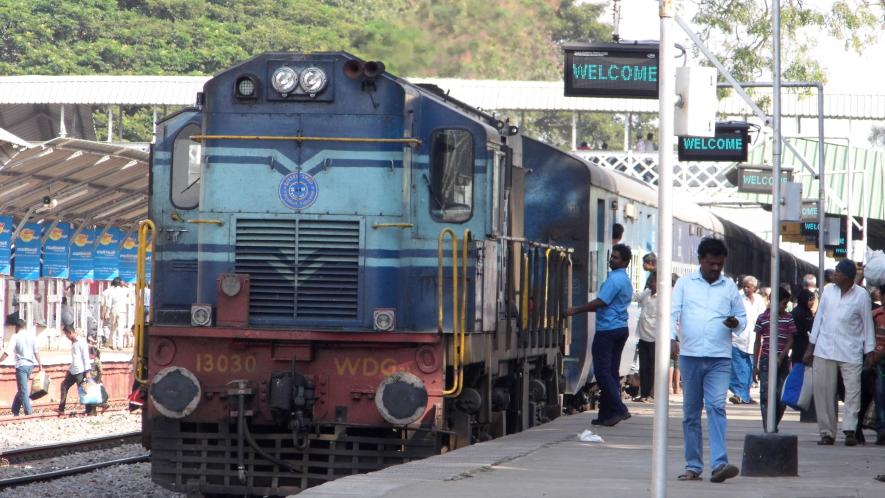
Image Courtesy: Wikimedia Commons
Former Indian Railways chief engineer Alok Kumar Verma speaks to independent journalist Rashme Sehgal about the accident involving three trains in Odisha’s Balasore on June 2, which killed over 280 people. They discuss the decline in the performance and safety standards of the Indian Railways and the lack of accountability after accidents. Verma holds the Railway Board responsible for not standing up to the whims of the political class, which has skewed its priorities—a service millions need is neglected, while exclusive trains that will cater to the wealthy garner massive funding—edited excerpts from an interview.
Rashme Sehgal: A dissenting note by AK Mahanta, a senior engineer, disputes the stand of four other members of a panel that examined reasons for the recent train accident in Odisha. What is your reaction to this?
Alok Kumar Verma: It is a standard and mandatory procedure in the Indian Railways, after an accident, for senior supervisors to rush to inspect the site. They are required to prepare a joint note on the possible causes of the accident. The supervisors of tracks, signalling, and operations, and the station master and locomotive inspector prepare a joint note on what they believe were the possible causes of the accident. It is a mandatory procedure, and it is also common practice to give a dissenting note. Based on the datalogger report, Mahanta believed the signal was green for the Coromandel Express to take the main line, not the loop line. There is nothing unusual about a dissenting note.
RS: How does the datalogger system work?
AKV: It is like the black box in an aeroplane. It throws light on the railway signalling system and records every event, such as whether the signals have been turned on or not. It records everything automatically and is used to generate reports. It is a very important device.
RS: There are suggestions that the signalling process was tampered with, leading to the Odisha accident.
AKV: The entire investigation should have been left to the Commissioner of Railway Safety (CRS), the statutory authority, to prepare a report on what caused the accident.
RS: But rumours of sabotage with signalling were triggered by the Minister of Railways Ashwini Vaishnaw.
AKV: It was such a major accident that people got nervous and lost their heads. I cannot explain why the Central Bureau of Investigation (CBI) was called in to investigate the accident because, let me be very clear, the CBI has no competence to conduct such an enquiry. But this is something the minister concerned and the government want. Their [enquiry] can be seen as a side act because the government has not revealed why they believed there was sabotage. The CRS must complete its enquiry report, which should be put before the public and Parliament.
Let me give you an earlier example of the accident near Kanpur in November 2016, where 150 people died. The Railway Board and the then-minister said tampering caused the accident. The National Investigative Agency (NIA) was asked to investigate, and one and a half years later, it dropped all charges.
Or take the accident that occurred in Khatauli near Muzaffarnagar in August 2017 that left 23 people dead. The track inspector was not getting time to block the traffic on the tracks. He started maintenance work because he believed the tracks were becoming unsafe. He put up red flags, but the driver of the Kalinga Utkal Express, coming at great speed, did not stop the train resulting in the derailment.
RS: Has there been no learning curve in the Indian Railways following these accidents?
AKV: The CRS looks at the immediate cause of the accident, but behind these are systemic causes that need to be urgently addressed. For every accident, there are numerous near misses and near collisions. It is time the CRS should go into the root causes of why these are taking place.
The problem is that accountability is missing in our country, and the Railways are no exception. Who has been held responsible for these accidents? What action has been taken against them?
RS: Is it the speed of trains that causes accidents?
AKV: We do not have fast trains. In fact, we have amongst the slowest trains in the world, yet we have catastrophic accidents. Maintenance work is being compromised. Our station officers and other staffers are overworked. Overcrowding in our general and sleeper compartments is another major problem, and this increases fatalities. In case of difficulties, extracting the survivors and the deceased becomes challenging.
In the Balasore accident, the Bengaluru-Howrah train was more than two hours behind time. This indicates the chaotic conditions under which the staff is working. Trains running late means the entire scheduling is upset. Everyone has to do extra work. It creates a lot of instability in the system.
RS: What could be the other reasons for such an accident, from your experience?
AKV: The interlocking system of the Railways is robust, but there is a possibility of problems with the signalling and the interlocking, as the joint note says. By interlocking, we mean that the signal will not turn green unless the pass (to allow a train to move ahead) is appropriately sent. The Coromandel Express train was to run through, but the signal was set for the loop line. This indicates a failure of the system. There was some malfunctioning in the interlocking system, and, most probably, it was not attended to in a proper manner. It was defective. Repairs were not done correctly, and so it did not work. This indicates there could have been some mishandling during maintenance work. The government is claiming this malfunctioning was due to external interference. The key question is why the interlocking was not working.
RS: Could the Coromandel Express have been informed of this?
AKV: Station masters have walkie-talkies, as do locomotive drivers. Red flags should have been put out. Putting up red refractive lights is also a standard procedure when a signal is not functioning. But I contend that this is indicative of a systemic failure in the Railways, which are functioning at 125% to 150% of their capacity, whereas a standard procedure is that for a system to perform, it should be functioning at between 70 % to 90% capacity--as is the case with railways around the world.
Otherwise, shortcuts are adopted, which is exactly what happened in Khatauli in 2017. The track engineer was unable to repair the tracks. He was not being given a traffic block, so he put up red flags [to warn oncoming trains] and started doing his work. He should not have agreed to undertake repairs. But in Balasore, they did not put up even red lights--signal lamps with refractors--that make them visible to train drivers from one kilometre away.
RS: A Comptroller and Auditor General (CAG) report from barely two years ago pointed to several shortcomings in the Railways of the kind you mention. How serious are these reports?
AKV: CAG reports have pointed out many limitations, but their primary job is to look into the accounts; they are not a technical [rail] authority. Their audit reports do not speak about congestion on our railway tracks. Nor do they refer to their lack of maintenance. What action have they or any other body taken on the large number of accidents during the last 25 years, or on the key issue of fixing accountability? People should get jailed for criminal negligence. The 2016 and 2017 accidents in Khatauli and Kanpur are recent accidents. People should not be allowed to forget them.
RS: Let us discuss our system for rail safety again. What is the procedure like?
AKV: In our system, the CRS and nine commissioners looking at different regions are concerned with the safe running of trains. It is for the CRS to pursue matters and to fix responsibility. It should also monitor the decisions of the Railway Board and ensure they comply with its decisions as far as safety is concerned.
For example, in the North East, the railways opened a new passenger line between Lumding to Silchar in late 2015 after converting it to broad gauge. This was done without adequately studying ground conditions or preparing proper alignments. The Railway Board should have also done an accurate survey before opening the track. I was chief railway engineer then and ordered the line shut for some time because frequent landslides were blocking the tracks and because of very heavy rainfall. The general manager overruled my decision, and two back-to-back derailments followed within three days. Why was no responsibility fixed? Why was the track allowed to open? Accidents happen because of systemic problems.
RS: The situation seems quite grim from what you say.
AKV: The railways are in the ICU. We must not forget the railways are the lifeline of a nation’s economy and social life. Barely 2% of our population can afford to travel by car or plane. Travelling long distances by car is hardly viable. After 2005, the railways were unable to meet traffic demands, and if we look at the railway’s charts, there is hardly any passenger growth after this year. The railways should grow at 5% to 10%, as between 1990-2000. These were very good years for us, but after the Covid-19 pandemic, both passenger and freight traffic declined.
RS: What factors should be considered when boosting investment in transport infrastructure?
AKV: We are building expensive expressways at a phenomenal rate, and the airlines and air traffic are growing at 10% too, but the most climate and environment-friendly means of transport, the railways, have been neglected, which is very tragic. It is because of misplaced priorities.
RS: What could explain this skew in priorities?
AKV: The answer is very simple. Automobile makers, oil companies and airlines comprise very powerful lobbies. In China, the railways are robust and have made tremendous strides. There, even the affluent prefer to travel by rail. If train travel offers safety and comfort, why will people travel by air or car?
These lobbies worked against the United States and Europe railways during the 50s, 60s, and 70s. Only after the Arab-Israeli war in 1972, when the oil prices shot up, did the European nations awaken and start massive investments in the railways. These are historical facts.
Airlines, automobile, and oil companies are privately owned, but railways cannot grow without government support. The question the nation needs to ask the government is why it and the Railway Board are not paying attention to congestion on our main trunk routes from Delhi to Chennai, Delhi to Mumbai and Delhi to Kolkata. Just on these routes, congestion exceeds 125% to 150%.
RS: Surely Indian Railways must push for decongestion on the main routes and demand more lines along them.
AKV: I agree. The Railway Board is not projecting its requirements. Take the bullet train [coming up] between Mumbai and Ahmedabad. Its costs are astronomical and double that of a broad gauge line. We are spending Rs 2 lakh crore on building a 500 km stand-alone line, which other trains will not use because they run on broad gauge. At the cost of Rs 7 lakh crore, we could have upgraded 15,000 kilometres of our main trunk routes and removed all bottlenecks. We have chosen to spend thousands of crores on a stand-alone bullet train, whereas this money could have been used to upgrade thousands of kilometres of track millions of commuters use. The Railway Boards are at fault for subsidising such a project because those who can afford bullet train travel are a class who can easily afford air tickets. They should have put their foot down and not allowed it.
It is the same with our Vande Bharat trains on which Rs 60,000 crore are being spent. They cost double that of a Shatabdi but will save only 10-15 minutes of travel time. That is because our tracks do not allow fast travel. We should have focused on adding more trains like the Coromandel Express.
We need to start building new lines and upgrade our current lines. Sadly, this has not happened though this problem has existed for 10 to 20 years. Congestion and safety concerns should be the key, as also giving time to necessary maintenance work. Note that the accident rate in our country is at par with [developing nations like] Pakistan, The Congo or Tanzania, but no accident of such magnitude as Balasore has occurred in those nations.
Get the latest reports & analysis with people's perspective on Protests, movements & deep analytical videos, discussions of the current affairs in your Telegram app. Subscribe to NewsClick's Telegram channel & get Real-Time updates on stories, as they get published on our website.









